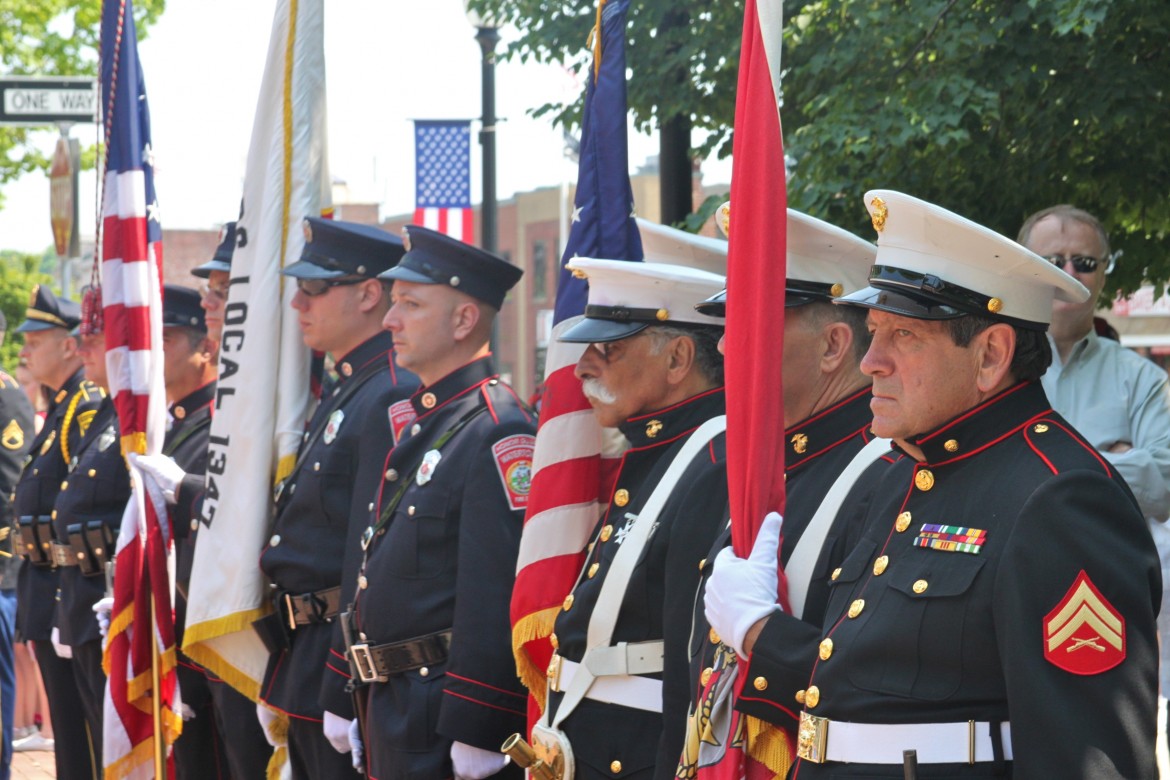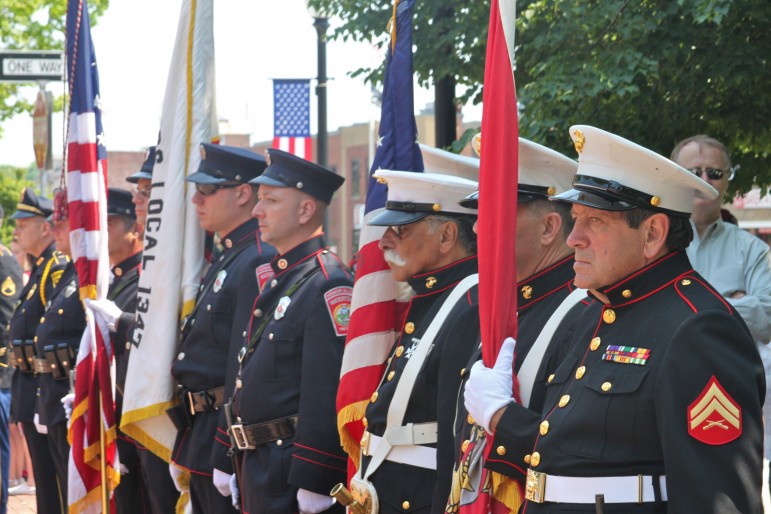
Watertown’s long military tradition dates well before the founding of the United States. The battles where Town’s the sons (and in one case daughter) served and gave their lives include some of the most hallowed in American history: Lexington, Bull Run, Pearl Harbor, Okinawa.
The names can still be seen around town being memorialized in the names of street signs, parks and squares — Phillip Darch Road, O’Connell Park and Moxley Field are just some.
Memorial Day honors the men and women who died while serving in the U.S. military. It first began in 1860s following the Civil War, the nation’s deadliest conflict and became an official federal holiday in 1971.
The names of Watertown residents who served in conflicts from World War I to Vietnam are listed on bronze plaques on the walls of the stairway leading up to the Council Chamber in Town Hall. Under the words “Our Honored Dead” are the soldiers, marines and sailors who made the ultimate sacrifice.
For wars prior to the 20th Century, the lists are not as readily available. A book called “Watertown’s Military History,” written in 1907, documents town resident’s service in the military from early colonial times through the Spanish American War.
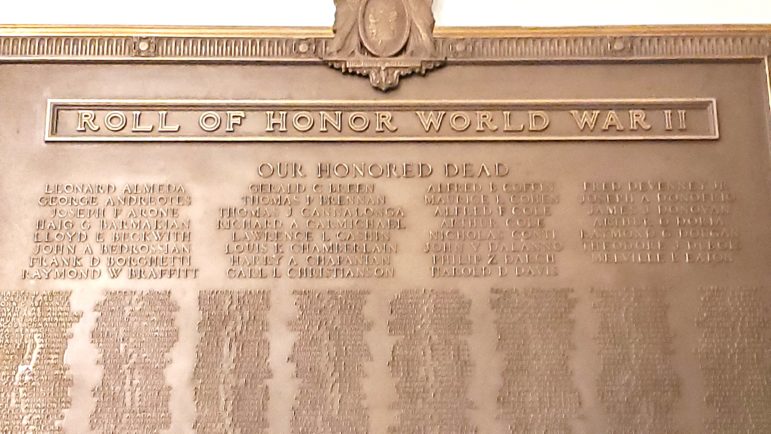
The town’s first battlefield death occurred during an early conflict between colonists and the local Indian tribes, known as King Phillips’s War. “Captain Richard Beers, one of its original proprietors, who had been admitted freeman Mar. 16, 1636-7, lost his life near Northfield, Sept. 4, 1675,” according to Watertown’s Military History. John Chinery was wounded at the same battle and later died of his wounds. John Hagar lost his life during the war on Dec. 19., 1675.
One Watertown man, Ebenezer Brown, died during the French & Indian War at Ticonderoga.
On the first day of the the Revolutionary War, April 19, 1775, Watertown’s Joseph Coolidge was killed by the British as they retreated from the battles at Lexington and Concord earlier that day. Another resident, Edward Harrington, died at Ticonderoga on Sept. 23, 1776.
More than 20 residents died during the Civil War. Gregg Smith was killed on Aug. 29 1862 in the Second Battle of Bull Run. Chaplain Arthur B. Fuller lost his life in December 1862. He had been discharged from the Army for a disability but “being there, and seeing the heroism of our troops, he could not resist the opportunity to prove by acts his love for the cause, and by example his unfeigned patriotism,” the book said.
The list of dead from World War I is almost 30 names long, including one who has been memorialized in the name of a Town park — Dominik Filippello — and the only woman from Watertown who died during war — Mary Elinor O’Connor.
World War II was the costliest conflict for Watertown, with more than 100 men lost. Phillip Darch served on the U.S.S. Arizona, and died on Dec. 7, 1941, when the Japanese attacked Pearl Harbor. He now has a road named for him off of Lexington Street. Charles Shutt served with the Marines and fell on Okinawa toward the end of the war. The Marine Corps League on Mt. Auburn Street now bears his name. Some of the names that have been memorialized around Watertown and beyond are: Robert Ford (a road in West Watertown), Leo Martin (a DCR golf course in Newton) and Ralph Piteri (a road in East Watertown).
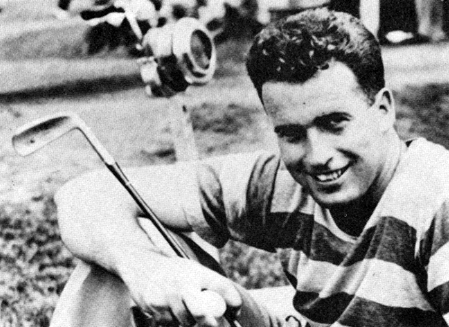
The Korean Conflict took the lives of 10 Watertown residents. The park in front of the Hosmer School is named after Capt. Richard P. O’Connell, who died in Korea.
Nine Watertown men gave their lives during the Vietnam War. Casey Park on the Southside of Watertown is named for James Casey. Paul Sullivan has been memorialized by the naming of a playground in Coolidge Square, and has scholarships have been given in his name for more than 50 years. Moxley Field near Watertown Middle School is named for Richard Moxley. Recently Paul Gorman was honored with the naming of a square near his childhood home, on Main Street near the Gore Estate.
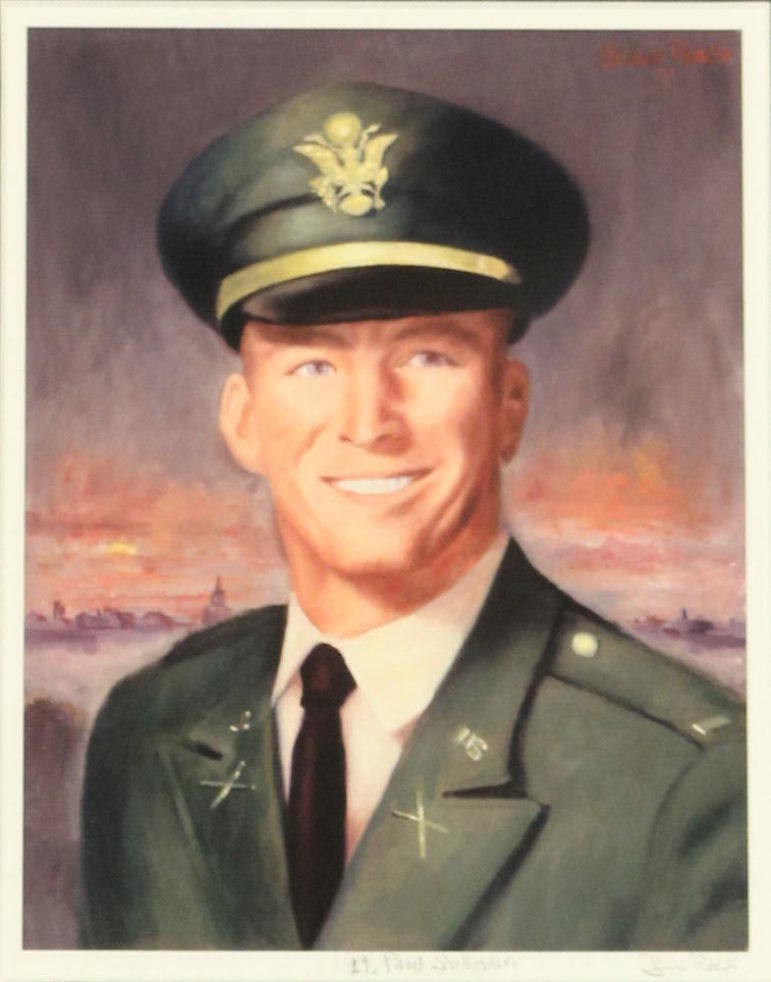
“Our Honored Dead”
Vietnam
James Patrick Casey
Paul James Gorman
Frederick E. Harrington Jr.
John Robert Johnson
Daniel J. Minahan
John H. Moreno
Richard S. Moxley
John Joseph Sullivan
Paul Joseph Sullivan
Korean Conflict
Norman C. Brackett
Kenneth W. Christensen
Francis K. Mahoney
John J. McDonald
John Goodrow Sheehan
Anthony F. Tobio
George McManus Jr.
Richard P. O’Connell
Clifford Pye
Charles K. Yeremian Jr.
World War II
Leonard Almeda
George Andreotes
Joseph F. Arone
Haig G. Barmakian
Lloyd E. Beckwith
John A. Bedrossian
Frank D. Borghetti
Raymond W. Braffitt
Gerald C. Breen
Thomas P. Brennan
Thomas J. Cannalonga
Richard A. Carmichael
Lawrence L. Cashin
Louis K. Chamberlain
Harry A. Chapanian
Carl L. Christianson
Alfred B. Coffin
Maurice L. Cohen
Alfred F. Cole
Arthur Cole
Nicholas Conti
John V. D’Alanno
Phillip Z. Darch
Harold D. Davis
Fred Devenney Jr.
Joseph A. D’Onofrio
James J. Donovan
Arthur O. Doria
Raymond G. Dougan
Theodore J. DuBois
Melville N. Eaton
George H. Elms
John A. Fantasia
Jesse J. Farese
Romeo A. Farese
Ernest B. Ford
Robert M. Ford
Arthur O. Furfey
Louis W. Gahran Jr.
George M. Gaitanis
Leopold W. Gierwiatowski
Joseph H. Gilfoil Jr.
Charles E. Griffith
George F. Harris
Robert E. Hartenstein
Charles R. Hasekian
Lester W. Haynes
John W. Hennessey
Richard Henry Jr.
Thaddeus R. Hubbell
Paul W. Hughes
Alfred Iodice
Eric B. Ives
Myron L. Jevelekian
Charles E. Johnson
Henning E. Johnson
Malcom E. Johnson
Louis W. Juliano
Aram G. Kadehjian
John R. Keane
Douglas C. Kenney
Paul L. Kenney
Armand Keshishian
Bruce S. Kindred
Robert A. Krancer
William H. Kremin
Walter F. LaFort
John M. Lambert
Joseph F. Lennon
Minas L. Loisou
Robert E. Looney
Charles J. Mackin
Gordon G. MacLennan
John J. Maloney
William F. Mann
Paul S. Marsoubian
Frederick N. Martin
Leo J. Martin
John M. McCall
Allan McClay Jr.
Stanley J. McEachern
Warren F. McManus
Harold H. Melkonian
Suren Melkonian
Edward F. Moran
John J. Moran
Murad Mouradian
Richard S. Movsessian
Harold C. Moyles
Felix T. Murphy
George T. Natale
Paul Nugent
Joseph M. O’Callaghan Jr.
Michael G. Papadopulos
George A. Perkins
Alfred W. Pezzella
Ralph A. Piteri
Clarence D. Powell
Robert F. Prest
Vincent J. Ranucci
Lawrence N. Rice
John A. Richards
Henry H. Roberts
Edward T. Roche Jr.
Bernard F. Romano
Angelo Russo
Dominic J. Russo
Edward A. Safer
Raymond E. Sargent
Stephen F. Sawyer
Charles J. Shutt Jr.
Warren S. Studley
Otto M. Theurer
Albert C. Todino
Simon Torossian
Thomas J. Trapasso
Samuel Tungrain Jr.
Thomas A. Waldron
Earl H. Welch
Michael F. White
Robert S. White
Jack Wiltshire
George F. York
World War I
James W. Abbott
Ernest Matthew Allen
Gardner H. Bennett
Herbert William Bennett
Ira Miller Bradbury
Albert Jeffrie Briggs
Harold Ellsworth Burnham
Patrick Joseph Connors
Dominik Filippello
Eugene Joseph Guihan
Edward Bartlett Hayden
Andrew Jusbadone
Michael F. Kelley
William Edward Kerens
Charles Henry Madden
John Joseph Manning
James Douglas Morgan
Michael J. Morgan
Timothy Joseph Mullen
Ralph Thomas Neal
Mary Elinor O’Connor
Charles Leo Ostridge
Hector Parquette
John C.A. Proctor
Thomas James Rooney
Harry Stanley Sampson
Joseph Upham Thompson
Henry West
Civil War
Chaplain Arthur B. Fuller
Gilbert Bright
Daniel Burns
Charles F. Coburn
Cornelius J. Flynn
Edward Lyman
Charles A. Morse
Thomas C. Norcross
John P. Rogers
Gregg Smith
John Stevens
Rev. Henry E. Hempstead
Owen Dinan
Willard Bright
Nathan S. Kemp
William H. McCabe
Isaac B. Patten
Augustus Severance
Harrison J. Craig
Philip McGuire
George Brown
Bernard Cook
John McGinley
Revolutionary War
Joseph Coolidge
Edward Harrington
French & Indian War
Ebenezer Brown
King Phillip’s War
Capt. Phillip Beers
John Hagar
John Chinery
